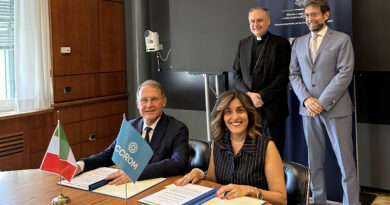Monetary Policy Committee Takes Strong Measures to Tackle Inflation Surge in Malawi
The Monetary Policy Committee (MPC) of the Reserve Bank of Malawi held its third meeting of 2023 on 26th July to discuss the country’s recent economic developments and decide on the appropriate monetary policy stance. The MPC announced significant adjustments to the Policy Rate and the Liquidity Reserve Requirement (LRR) ratio on domestic currency deposits in response to intensifying inflationary pressures.
Key Decisions by the Monetary Policy Committee:
- Policy Rate Increase: The MPC decided to raise the Policy Rate by 200 basis points, bringing it to 24.0 percent. This move aims to contain demand and reduce inflation, which has been on an upward trajectory.
- Liquidity Reserve Requirement Ratio Adjustment: The LRR ratio on domestic currency deposits was also increased by 200 basis points, taking it to 7.75 percent. This measure is aimed at regulating the amount of liquid assets banks must maintain in relation to their deposits, thereby impacting the availability of credit in the economy.
- Maintaining Foreign Currency Deposits Ratio: The MPC maintained the LRR ratio on foreign currency deposits at 3.75 percent and the Lombard rate at 20 basis points above the Policy rate.
Reasons Behind the Policy Adjustments:
Global Economic Outlook: The MPC noted that despite a slight upward revision in the 2023 global real output growth to 3.0 percent, it remains lower than the 2022 figures. The global economy continues to face challenges, with central banks raising interest rates to curb inflation, thereby affecting economic activity.
Domestic Economic Activity: Malawi’s domestic economy faced constraints due to limited foreign exchange supply, impacting the timely importation of intermediate goods for production. The 2022/23 agricultural season was also affected by adverse weather conditions. As a result, the initially projected growth of 2.7 percent for 2023 was downgraded to 1.9 percent.
Merchandise Trade Deficit: Preliminary figures for 2023Q2 indicated a larger merchandise trade deficit compared to the previous quarter, primarily due to increased imports and decreased exports.
Inflationary Pressures: Inflation remained persistently high during 2023Q2, with headline inflation averaging 28.4 percent, driven by food inflation and other supply-side factors. The MPC noted that inflationary pressures were strengthening and that market expectations were contributing to the rising inflation.
MPC’s Rationale for the Policy Measures:
The MPC acknowledged that the previous monetary policy decisions might not have fully transmitted into the economy. However, given the intensification of inflationary pressures, the committee believed that further action was necessary to dampen the rising inflation while supporting the economic recovery process.
Looking Ahead:
The MPC projected that headline inflation would continue to rise, averaging 29.5 percent in 2023, above the previous forecast. The committee remains vigilant about the impact of its policy decisions and will closely monitor economic developments to ensure that inflation is brought back within the medium-term target.
The next MPC meeting is scheduled for 25th and 26th October 2023, with the decision announcement planned for 27th October 2023. The MPC’s actions are intended to steer the country’s economy toward stability and sustainable growth amidst the challenges posed by global and domestic economic dynamics.



